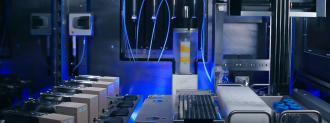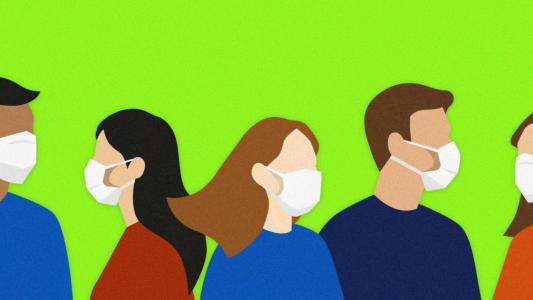Most new medications are discovered through trial and error — researchers start with an illness and then test compound after compound, using what they learn from each test to inform the next, until they find one that’s effective.
This approach to drug development works, but it’s also painstakingly slow — before a new medication reaches the market, researchers will spend an average of 10 years developing it.
But we don’t have 10 years for COVID-19 drug development — we need medications to treat patients now.
That’s led many researchers to try repurposing drugs for other illnesses to treat COVID-19, and some are proving useful for treating some patients, under some circumstances — but a drug developed specifically for the coronavirus might be even more effective.
Just like countless other workers, though, drug developers are finding themselves stuck at home during the pandemic — and without access to their labs, even the traditional (i.e., slow) drug development process is out of their reach.
Now, IBM has unveiled an online platform that will not only allow researchers to continue their COVID-19 drug development remotely, but potentially speed up the process, too.
Introducing RoboRXN
IBM’s platform, RoboRXN, combines artificial intelligence, cloud computing, and robotics to automate the drug development process.
Researchers log on to the platform through their web browser and then draw the chemical compound they want to make on the screen, adding atoms, bonds, and other necessary information.
RoboRXN then looks at that compound and predicts the optimal approach to making it, telling the researcher what materials to start with and how to combine them.
The researcher can then send that information to a remote lab where robots autonomously execute the instructions, combining the chemicals and sending a report on their reactions back to the researcher.
IBM compares this to telling the system you want to make a pizza and having it respond with an ingredient list and instructions on how to cook the pie.
You can then send that recipe to a robot chef to execute, and once it’s done, you can look at the result and decide if the recipe is right or in need of some tweaks — no need for you to cook all the pizzas needed to arrive at that perfect one yourself.
“RoboRXN can be considered for chemists what robotic vacuum cleaners are for humans,” Teodoro Laino, the manager of IBM Research Zurich, told TechTalks. “They do not necessarily make things faster, but they make things in a very reproducible way and during their work, you can focus on doing something else.”
COVID-19 Drug Development
The final step in the RoboRXN platform requires some prep work on the part of researchers involved in COVID-19 drug development: they need to actually build the autonomous chemistry lab and stock it with the necessary chemicals.
To make this as easy as possible, the IBM team designed RoboRXN to work with a lab built using commercially available hardware.
“The project is hardware agnostic,” Laino said. “Different types of hardware can be easily interfaced.”
IBM demonstrated RoboBXN’s potential for COVID-19 drug development on August 26, using the system to create a compound it previously identified as having potential therapeutic uses against the coronavirus.
The process took less than an hour, without a single human assisting the robot in the lab — meaning scientists can now social distance without putting their COVID-19 drug development on hold.
We’d love to hear from you! If you have a comment about this article or if you have a tip for a future Freethink story, please email us at [email protected].






